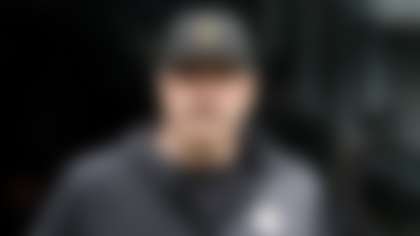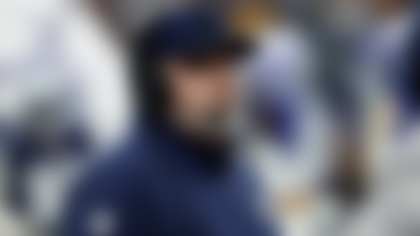By Bill Bradley, contributing editor
As president of the NFL Physicians Society, Dr. Matthew Matava knows the medical and training staffs of the Denver Broncos and the Seattle Seahawks will treat Sunday's Super Bowl XVLIII like any other game. As the team physician of the St. Louis Rams, he knows that's not as easy as it sounds.
"From a medical standpoint, we do the same jobs," Matava said Friday in a phone interview from New York. "Obviously, the stage is bigger. There are more eyes on you. You want to make sure you have everything prepared like you normally would for any other game.
"We don't take any extra precautions, except to familiarize ourselves where, say, the X-ray machine is, where the entrance is for ambulances, where's the nearest hospital, what's the phone number for the emergency room we would go into, who is the liaison in that city for the medical issues. You want to familiarize yourself with the fact that this is basically a road game and we do the same thing for every road game."
Dr. Matava knows what he's talking about. He has been the Rams' physician for more than 13 years and he worked the sidelines during Super Bowl XXXVI against the New England Patriots.
He said both teams will bring their typical staffs, which normally consist of two orthopedic surgeons, two primary care physicians, a chiropractor and four athletic trainers.
"They won't have an X-ray staff because the home stadium will provide all that," Matava said. "The only additional thing that will be unique to a Super Bowl will be some physicians from the New York Giants that will be on standby on the field to coordinate any transportation for player if he has to be taken from the field to a hospital.
"You have to keep in mind that neither medical staff has the license to practice medicine in the state of New York. If an emergency surgery has to be done, it likely will be taken over by the New York Giants' doctors."
This is the first Super Bowl to be played with independent neurospecialists on each sideline, which were added for every NFL game this season.
"I suspect it will be the same people the (work the sidelines) for the New York Giants or New York Jets games," he said. "It's been a great adjunct with what we do as team physicians in diagnosing concussions."
Those independent specialists may be as important as ever with the magnitude of the game. An ESPN poll released Monday said 85 percent of players would try to play in the Super Bowl if diagnosed with a concussion. On Tuesday, Broncos wide receiver Wes Welker, who missed four games because of concussion issues this season, said he would try to keep playing Sunday if he suffered a head injury.
However, Matava said the temptation to buck the NFL's concussion protocol starts with a strong relationship between the players and the team physicians.
"The question was asked of players, 'Would you rather have a concussion or a knee injury?' They see a knee injury as season-ending or perhaps career-ending," Matava said. "What I try to explain to them is that I can reconstruct a knee, but I can't reconstruct a brain.
"Our job as a medical staff is not only to take care of the player during the season, but also to help them with their health down the road functioning as a retired player. When you put that in perspective to them, I think they understand it a little bit better. I think the awareness that the league has brought out through protocols and technology we have on the sidelines with the tablets to help us with diagnostic testing ... let the players know we take this problem seriously."
Matava said it was encouraging to see the NFL's concussion totals released Thursday were down by 13 percent this season compared to last season. But that doesn't mean the league can coast, he said.
"There's no number of concussions that is considered acceptable," he said. "We're doing everything we can to get that number down to 0. We're encouraged because it is headed in the right direction."
With the Rams not participating, Matava is going to relax in the stands where he will watch the game with his son.
"The last time I was in the stands was when the Rams won in Atlanta (2000) and the snowstorm they had in that city," he said. "It's still going to be fun hanging in the sidelines. This is (my son's) first Super Bowl."



